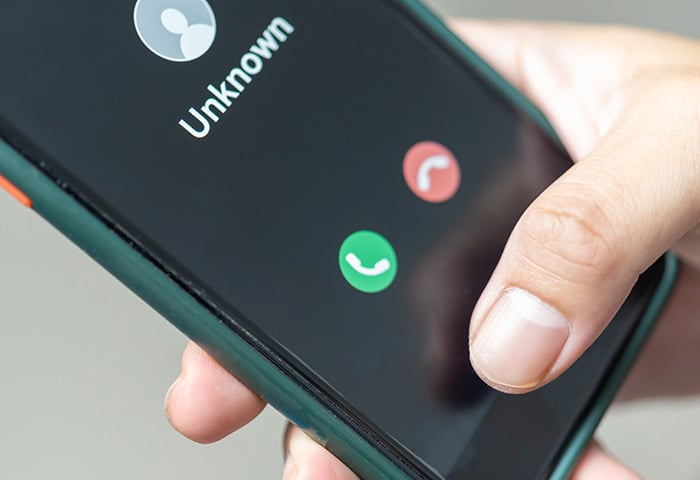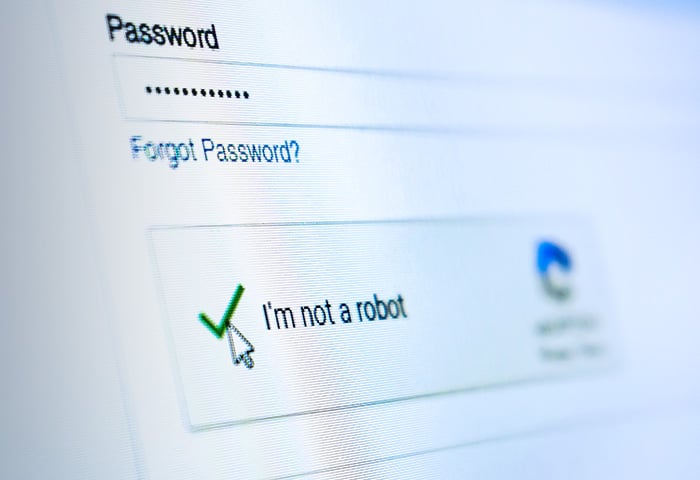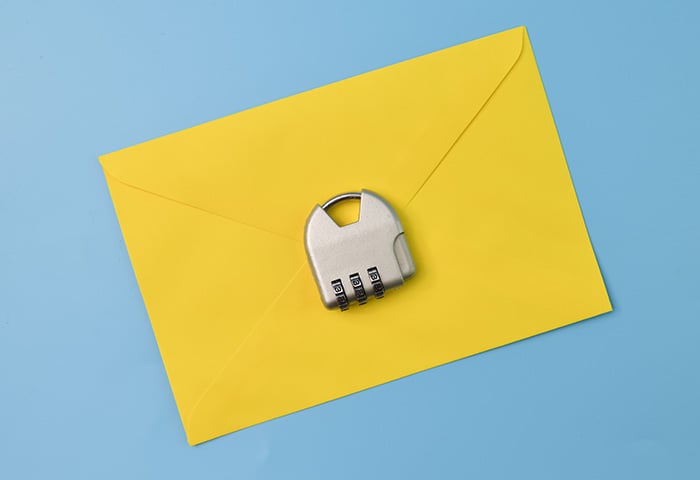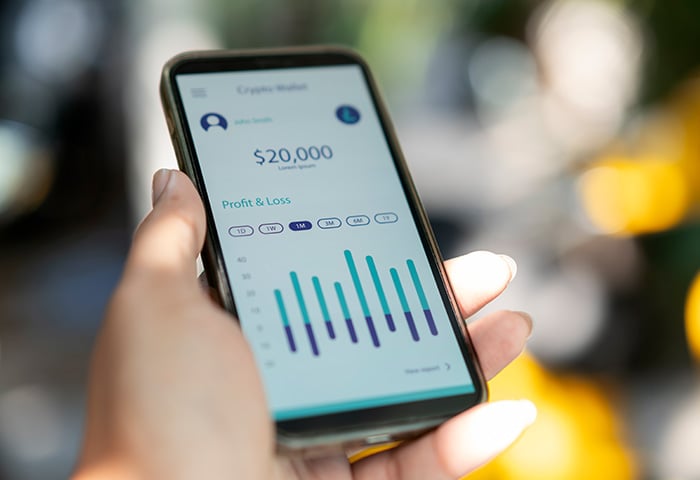What is Coinbase?
Coinbase is a cryptocurrency trading platform where people can buy, trade, and store crypto tokens such as Bitcoin and Ethereum. Coinbase is one of the most popular crypto apps and websites, and it's used to trade over 150 decentralized cryptocurrencies thanks to its ease of use, quick withdrawals, and generally strong security.
You’ve probably heard of popular investment brokerage apps like E-Trade, Robinhood, and Schwab that allow you to buy and trade stock online. Coinbase is similar, except that it’s used for trading crypto.
How does Coinbase work?
Coinbase works just like other trading apps. From the Coinbase app or site, you can view your crypto balance and set a watchlist of tokens you want to buy or sell. Coinbase allows you to hold crypto in a secure cryptocurrency wallet, send crypto directly, spend it wherever merchants accept crypto payments, or withdraw it.
 Coinbase lets you buy, sell, store, and trade a variety of cryptocurrencies.
Coinbase lets you buy, sell, store, and trade a variety of cryptocurrencies.
About Coinbase
Coinbase is a US-based cryptocurrency trading platform that operates in over 100 countries. Coinbase was founded in 2012 by Brian Armstrong. By 2014, it had amassed over 1 million users and launched Coinbase Global. Coinbase helped accelerate the adoption of crypto payments worldwide by partnering with major companies like Dell, Expedia, and Time Inc.
Now, Coinbase is the largest cryptocurrency exchange in the US. It has over 3,700 employees and serves over 100 million users around the world. Coinbase went public on the Nasdaq exchange in 2021. Its ticker on the stock exchange is COIN.
Is Coinbase legitimate and trustworthy?
Overall, Coinbase is a secure and reliable crypto exchange. Coinbase has over 40 licenses to operate in the US, and it is licensed to operate in an additional 31 countries. It adheres to KYC (Know Your Customer) standards, which are a set of rigid regulations in the investment and financial services industries relating to customer verification.
Coinbase has strong security measures in place to protect crypto funds in users' wallets. Most notably, Coinbase stores 98% of user funds on cold storage. In this context, cold means offline. Funds stored on offline hardware are much more secure against cyber threats, such as hacking. Coinbase also uses 2-factor authentication (2FA) for logins and other actions within the site, which greatly reduces the likelihood of an account being compromised.
Coinbase's trust and security ratings around the web are some of the highest among crypto trading platforms. When considering how secure Coinbase is, take a look at what some investment and security authorities have to say:
As a US-based, financial services company, Coinbase is subject to a wide range of SEC regulations and can be held accountable if something goes wrong. Brands based in other countries may not be held to the same regulatory standards.
An example of this is the failed crypto trading app FTX. The company was based in the Bahamas and left billions of dollars of its customers’ assets in regulatory limbo when it collapsed.
Has Coinbase ever been hacked?
Coinbase was hacked in 2021, when a security flaw in Coinbase’s account recovery system compromised the accounts of at least 6,000 Coinbase users. Coinbase quickly patched the vulnerability and reimbursed users in full.
Hackers have made many attempts to infiltrate Coinbase. In 2019, Coinbase security detected and blocked a large-scale attack on the company’s vital systems that would have cost billions of dollars. Coinbase was praised for foiling the 2019 attack, in which attackers combined spear phishing, social engineering, and zero-day exploits.
But, as the 2021 Coinbase hack showed, user accounts on the crypto exchange are not completely safe from hacking. If sophisticated hackers gain access to your personal information — such as your address, passwords, and phone number — they may be able to gain access to your account, even without hacking Coinbase’s systems.
That’s why it’s so important to protect your personal information while you browse online by using a browser built for privacy and security, like AVG Secure Browser.
Can you get scammed on Coinbase?
Yes, you can get scammed on Coinbase. Scammers use a variety of tricks to steal data and manipulate users into giving it up willingly. And once they have your personal information, they may be able to access your Coinbase account.
Here are a few common Coinbase scams to watch out for:
-
Giveaway scams: A scammer baits you into thinking you’ve won a large prize and asks for personal info like your address and phone number.
-
Impersonation scams: This is when a scammer pretends to be a person or company you might know in order to trick you into giving up information.
-
Telegram scams: These scams take place on the Telegram app. Scammers lure users off the app to imposter sites or send links laced with malware.
-
Loader scams: A scammer may ask you directly for your Coinbase login info so they can use your account to invest, promising to give you a cut of the proceeds in return.
-
Extortion schemes: Your personal info — such as passwords, photos, and contact info — is scattered across the web. Scammers may use this info to scare you into complying with their demands. In extreme cases, extortion schemes may lead to blackmail or sextortion.
-
Investment scams: You may be presented with an investment or business opportunity with promises of big gains to goad you into placing a large stake.
-
Employment scams: A scammer may find your info on LinkedIn and impersonate a recruiter offering an unbelievable job. In reality, they’re harvesting your info in order to hack your Coinbase account.
-
Phishing: Similar to an impersonation scam, phishing emails ask for crypto payments in exchange for something valuable — often a new ICO (initial coin offering) that’s about to “moon,” or increase in value significantly.
-
Technical support scams: Tech support scams usually come in the form of emails asking you to send your account info immediately before it’s permanently closed.
-
Mining pool scams: You may be contacted by someone asking you to join a crypto mining pool — a con that promises large returns. Beware of clicking links from unknown parties to avoid unwittingly installing crypto-mining malware on your PC.
How to avoid Coinbase scams
Scammers are always going to target lucrative and anonymous assets like cryptocurrency. But if you stay sharp, you can avoid them without much trouble.
Here’s how to avoid common Coinbase scams:
-
Be careful chatting online with anyone you don’t know, regardless of the platform you’re on.
-
Avoid clicking links unless you’re sure of their origin and destination.
-
If you receive an offer that’s too good to be true, it probably is.
-
Use safe websites that are encrypted with SSL certificates.
-
Be wary of urgent offers or warnings.
-
Never give out your login information.
-
Don’t engage with anyone on social media asking about crypto payments.
-
Use a VPN when sending personal information online.
 A VPN establishes a secure, encrypted connection when communicating online.
A VPN establishes a secure, encrypted connection when communicating online.
If you think you’ve caught a scammer in the act (or if you’re a victim), contact Coinbase support immediately and report the scammer to the appropriate authorities.
Coinbase security measures
Coinbase uses robust security measures to protect users' accounts when they trade crypto on the platform. Coinbase also provides users with security features to safeguard their Coinbase accounts from cyber threats and scammers.
Here are some security tips to help you protect your Coinbase wallets:
-
Use two-factor authentication. 2FA requires you to use a second verification method — like biometrics or a verification code sent via text — to access your account.
-
Always use strong, unique passwords. Hackers can guess simple passwords, and repeated ones may expose you in the event of a breach on a different site. Create strong, unique passwords to ensure security across different accounts.
-
Secure your mobile account. Turn on “screen lock” on your mobile device and enable a security passcode in the Coinbase app’s settings.
-
Update and clean your devices. Security updates fix flaws and vulnerabilities that might otherwise give hackers access to your data. Make sure to scan for viruses regularly and avoid questionable third-party software.
-
Protect your cloud storage accounts. Always use 2FA and unique, complex passwords to protect your data stored in the cloud.
-
Monitor your recent activity on the Coinbase activity page. Keep track of your movements and be wary of any actions that you don’t remember taking yourself.
-
Use the Coinbase vault option. Store crypto that you’re not actively trading in the vault, an extra secure storage option by Coinbase that has multi-email withdrawal approval and a 48-hour withdrawal delay.
-
Stay vigilant and monitor application activities on your device. Regularly check activity on the devices you use to access Coinbase, including activity in other apps.
-
Contact customer support in the event of a security or data breach. If you suspect a security issue or data breach, contact Coinbase support immediately. Quick action against attackers can prevent losses.
Coinbase wallet security
Coinbase’s wallet security is highly secure — even Coinbase can’t access your wallet. Coinbase wallets are non-custodial, which means only the user has the password to open them. As a result, Coinbase wallets are practically impenetrable. However, if you lose your master password (a series of 12 words), you will have no way to access your crypto.
 Coinbase has non-custodial, cold-storage wallets, so only the user can open them.
Coinbase has non-custodial, cold-storage wallets, so only the user can open them.
Coinbase’s cold wallet storage secures users' data, mobile applications, wallet addresses, and private keys with industry-standard AES-256 encryption. You should also implement 2FA to bolster your Coinbase wallet security. You can choose between three 2FA options, including phone, hardware keys, and TOTP authentication like Google or Duo.
Coinbase is the first SEC-registered crypto exchange
Coinbase became the first US-based cryptocurrency exchange to go public in April 2021, launching at a price of $250 per share under the symbol COIN. The move was a huge leap forward for the legitimacy of cryptocurrency and Coinbase’s security claims. In order to be listed on the stock exchange as a public company, Coinbase has to regularly disclose its financial and business records to the public.
But can’t Coinbase just lie on their reports? Not really. As a publicly traded company, Coinbase is regulated by the SEC (Security and Exchange Commission), an American financial watchdog organization that can punish dishonest companies. Coinbase is required to submit financial statements and other disclosures to the SEC on a regular basis.
Coinbase’s public listing is a sign that the company is dedicated to the financial security of its users, and that it plans to be around for a long time. Coinbase is not technically a bank, so its crypto assets are not FDIC-insured. However, Coinbase has insurance that protects a portion of its assets in the case of a cyberattack.
Coinbase sponsorships and partnerships
Coinbase works with some of the biggest brands in the world, giving more weight to the claim that Coinbase is trustworthy. Companies like PayPal, Google, Apple, Dell, and many others have partnered with Coinbase or used their services to offer crypto-related benefits to their customers. It’s unlikely these brands would risk their reputations and intellectual property on a company that they didn’t think was secure.
Coinbase’s sponsorships may be another indication of the company’s credibility.Coinbase has sponsored one of the world’s oldest and most premier esports teams — Evil Geniuses — with top players competing in nearly every competitive electronic game. Coinbase is also an official sponsor of the NBA and WNBA, the professional basketball leagues in the US.
Coinbase alternatives
Coinbase has many competitors. There are dozens of secure cryptocurrency wallets and exchange platforms that provide similar access to crypto services.
Here are a few Coinbase alternatives:
-
Bitstamp: Bitstamp is a crypto exchange company based in Luxembourg. Founded in 2011, it became a popular site for Europeans to buy and trade crypto using fiat currency and other cryptocurrencies. Bitstamp has been the victim of two hacks, the worst of which was in 2015 and resulted in the loss of 19 thousand Bitcoins (about $3.25 million at the time).
-
eToro: eToro is an exchange that offers both crypto and stock trading to its customers. The Israeli company specializes in social trading, a feature that encourages users to follow the trades of others in order to replicate their success. eToro has not been hacked, but it has been involved in some controversy — such as being accused of closing users' crypto trades and changing its terms of service without informing customers.
-
Binance: Binance is the largest crypto exchange in the world. The company is based in the Cayman Islands and is known for having affordable trading fees and a successful token of its own, BNB. Binance is generally understood to be a safe platform, but it has been hacked. In 2022, hackers exploited a vulnerability in the system and stole $570 million worth of BNB.
-
Gemini: Like Coinbase, Gemini is a US-based crypto exchange. While it’s a smaller platform, Gemini’s simple trading system appeals to those accustomed to trading stocks online. Gemini has not been hacked, but it has been embroiled in controversy, perhaps most notably as a result of the FTX bankruptcy in 2022.
-
Kraken: Kraken was founded in 2011 in San Francisco, and it’s one of the simplest and most affordable crypto exchanges. Kraken is also a reserve bank, which guarantees a high level of stability and security, even in the case of a bank run. Kraken has never been hacked, but it had some issues with regulators in 2018 when it refused to comply with an investigation into its activities in New York.
Stay safe when using Coinbase
Coinbase is one of the most trusted crypto exchange platforms around. It has high security standards to protect users' data, and it implements the latest tech solutions to support a highly-regulated platform. But even with its strong security protocols, Coinbase has still been hacked.
Whenever you send sensitive personal data online, use a browser built for security and privacy. With integrated antivirus and VPN capabilities along with built-in anti-tracking and ad-blocking, AVG Secure Browser will keep your private information private. Protect your personal information today — whether you’re trading on Coinbase or logging into your other online accounts — with AVG Secure Browser.
FAQs
Is Coinbase safe with my bank account?
Yes, it is generally safe to link your bank account to Coinbase for deposits and withdrawals. Coinbase prioritizes security and privacy by ensuring account numbers and routing numbers are stored using bank-standard AES-256 encryption. But like practically any digital platform, Coinbase is vulnerable to hacking. Make sure to use unique, complex passwords for all your accounts.
Is it safe to leave money in Coinbase?
It’s generally safe to store money in your Coinbase account. However, there’s always a possibility that a hacker may gain access to your personal information and use it to enter your account. To keep your assets safe in Coinbase, store them in your Coinbase wallet or in the Coinbase Vault, and use a secure password to keep them safe.
Is there a downside to Coinbase?
Coinbase’s fees are the biggest downside to the platform. Coinbase has been criticized for having a complicated fee structure, and it also charges higher trading fees and staking commissions than its competitors. Some customers have also complained about slow customer support.
Is Coinbase a safe investment?
Coinbase is generally a safe investment and is a secure platform for buying, trading, and storing cryptocurrencies like Bitcoin and Ethereum. It’s one of the most trusted ways to exchange cash, and it employs strong security measures to protect users, including AES-256 encryption, 2FA, and cold (offline) asset storage.

 Coinbase lets you buy, sell, store, and trade a variety of cryptocurrencies.
Coinbase lets you buy, sell, store, and trade a variety of cryptocurrencies. A VPN establishes a secure, encrypted connection when communicating online.
A VPN establishes a secure, encrypted connection when communicating online. Coinbase has non-custodial, cold-storage wallets, so only the user can open them.
Coinbase has non-custodial, cold-storage wallets, so only the user can open them.













